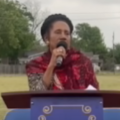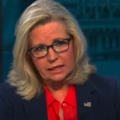As nationwide pro-Palestinian campus protests continue to stir significant controversy and concern, President Biden finally addressed the nation. His speech, which took place weeks after the protests began, aimed to underscore the sanctity of peaceful protest and the rule of law in America. However, many are questioning why such a critical response came so late and seem to view it as insufficient against the backdrop of escalating tensions.

Campuses across the country have been scenes of fervent pro-Palestinian rallies, many of which have been violent and intimidating towards Jewish students. These incidents have sparked a heated debate about the balance between free speech and the necessity to maintain public order and safety.
In his speech, President Biden made it clear: “peaceful protest in America [is permissible], violent protest is not.” He reiterated America’s position as a nation that does not silence or squash dissent but also emphasized that it is not a lawless country. While these words align with fundamental American principles, the timing and broader implications of his address paint a concerning picture of his administration’s priorities and the political calculations at play.
President Biden’s prolonged silence on the issue was glaring. For weeks, as tensions grew and the safety of students hung in the balance, the President engaged in various other less important activities including campaign stops and even an interview on the Howard Stern show, seemingly avoiding a firm stance that might alienate the far-left faction of his political base. This faction includes individuals and groups that might sympathize with anti-Israel sentiments, complicating the Democratic party’s traditional position. By delaying his condemnation of the excesses of these protests, President Biden appears to have placed political expediency over the immediate safety and well-being of American students.
Moreover, by attempting to contextualize the current protests within a broader discussion of hate speech—including anti-Semitism, islamophobia, and discrimination against Arab and Palestinian Americans—the President aimed to maintain a delicate balance. He stated, “There is no place for hate speech or violence of any kind,” a sentiment most would readily agree with. Yet, the inclusion of these other forms of discrimination in his speech seemed to serve as a buffer, perhaps to soften the blow to the more radical elements of his party base who view any pro-Israel stance as contentious.
This strategy, however, does little to reassure those who believe that clear, unequivocal support for the Jewish community and a firm stance against any form of campus intimidation and violence are overdue. The piecemeal approach to addressing the specific issues at hand—particularly the threats against Jewish students—signals a hesitancy that many find unacceptable in the face of clear and present dangers.
The administration’s response—or lack thereof—raises significant questions about its commitment to upholding not just the rule of law but the very safety and security that the law is meant to guarantee. It’s a stark reminder of the often complex and fraught intersection of politics, education, and community safety.
Final Thoughts
As President Biden’s speech finally airs, many are left wondering whether the words spoken are too little, too late. The fact that these words were delayed, calculated, and wrapped in political caution does not bode well for the administration’s credibility in managing domestic unrest. For many Americans, especially those directly affected by the campus protests, this speech was not just a missed opportunity, but a belated attempt to address a critical issue that deserved timely and decisive action. As the nation grapples with these ongoing protests, the need for leadership that prioritizes the immediate safety and well-being of all citizens has never been clearer.














Leave a Reply